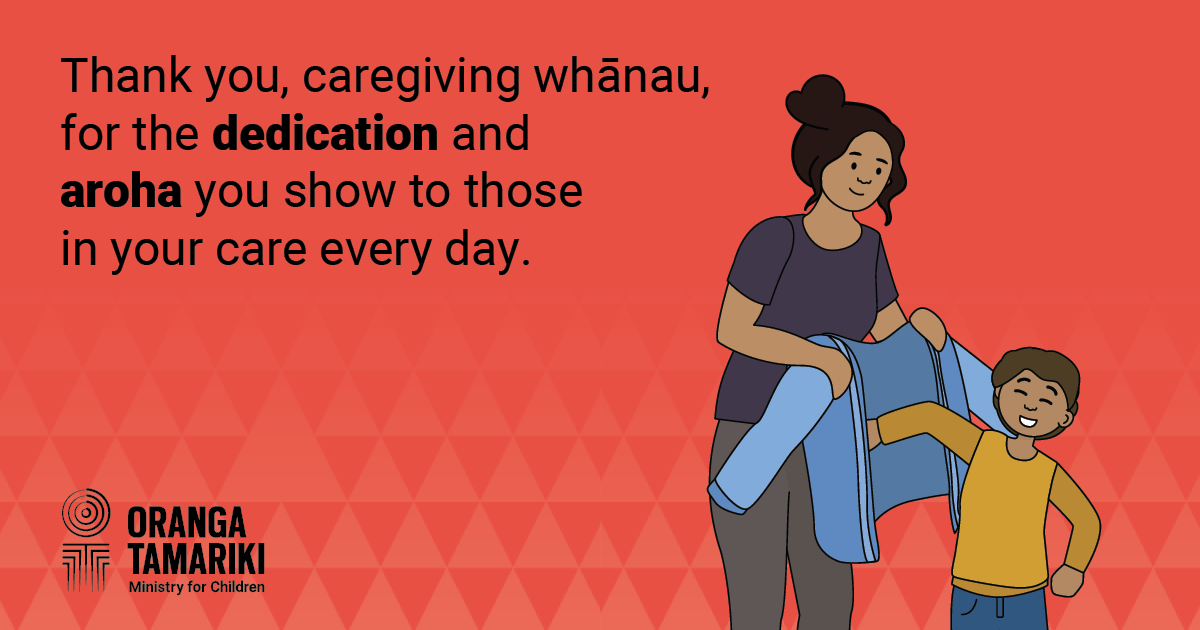Chappie acknowledges, on behalf of Oranga Tamariki and all of Aotearoa, the commitment and support caregiving whānau show tamariki and rangatahi when they need it the most.
'All caregivers have made a wonderful and selfless choice to care for tamariki and rangatahi when – for whatever reason – they are no longer able to live at home with their parents,' he says.
'I encourage caregiving whānau across Aotearoa to take some time for themselves this week to recognise and reflect on all they do, and the massive difference they’re making to the lives of those in their care.'
'It is important to recognise that being a caregiver can be as complex as it is rewarding. These are the people who spend hour after hour, day after day, month after month, caring for tamariki and rangatahi who cannot currently live at home,' Chappie says.


